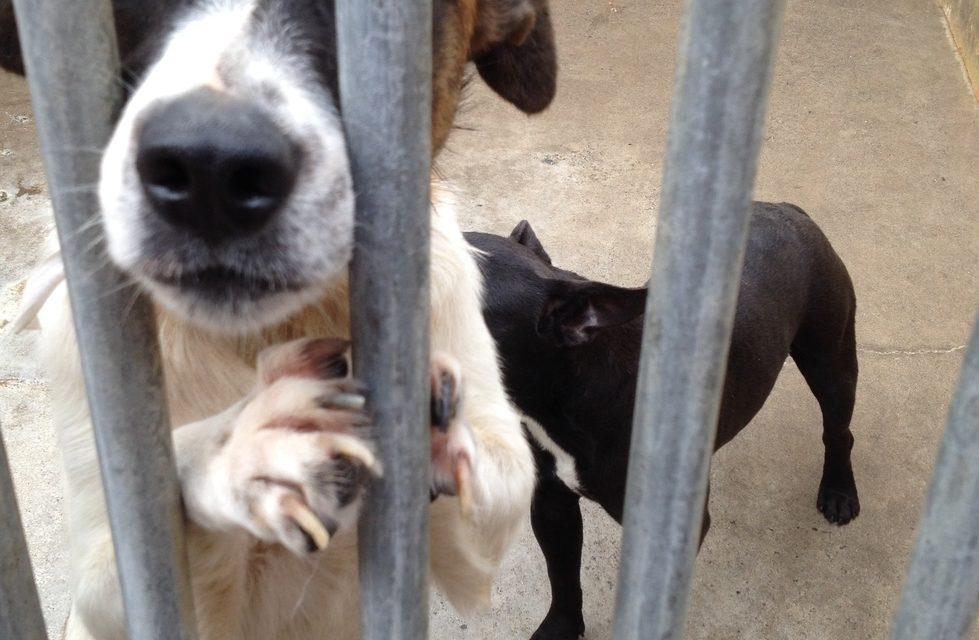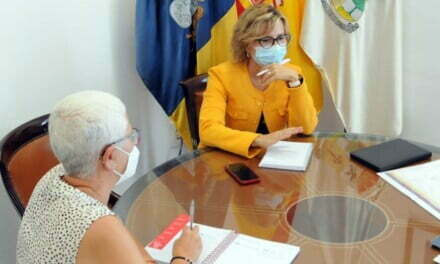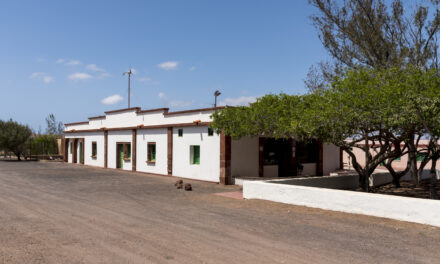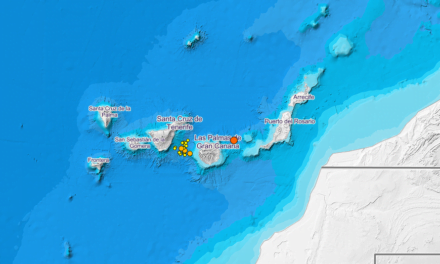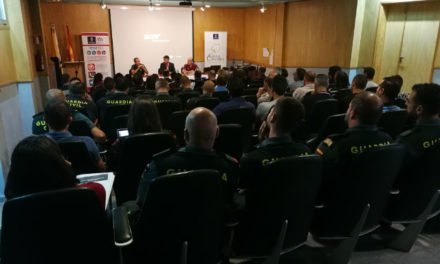 Gran Canaria Cabildo’s Insular Animal shelter will, from the first quarter of 2018, include a veterinarian education centre, newly created in collaboration with the island’s official College of Veterinarians de Las Palmas and the University of Las Palmas.
Gran Canaria Cabildo’s Insular Animal shelter will, from the first quarter of 2018, include a veterinarian education centre, newly created in collaboration with the island’s official College of Veterinarians de Las Palmas and the University of Las Palmas.
The creation of this centre is one of the progressive novelties presented by the Cabildo for the continuing improvement of the management of abandoned animals on Gran Canaria coinciding with the first year following the management change at the shelter, derived from a significant change of model, which has seen reported decline in the number of animals being euthanised on the island and an increase in adoptions, as well as the regularisation of the workers at the shelter, among several other improvements, said an end of year press release.
 With the installation of this veterinary training centre, the Island Cabildo plan to significantly reduce the days that animals have to spend at this centre that “should become a temporary place of stay and not a [simply] space where animals can be removed to and hidden for lack of a policy committed to comprehensive management of animal welfare for the whole island“said Minister of Environment, Miguel Angel Rodriguez, who added that this training centre “will allow any animal that enters the shelter to be sterilised and vaccinated before even having an adoptive family”.
With the installation of this veterinary training centre, the Island Cabildo plan to significantly reduce the days that animals have to spend at this centre that “should become a temporary place of stay and not a [simply] space where animals can be removed to and hidden for lack of a policy committed to comprehensive management of animal welfare for the whole island“said Minister of Environment, Miguel Angel Rodriguez, who added that this training centre “will allow any animal that enters the shelter to be sterilised and vaccinated before even having an adoptive family”.
Rodriguez also announced that during 2018 the Cabildo will undertake €190,000 worth of works to improve the facilities, necessary to adapt the shelter to the needs of a new abandoned animal management model that “tries to solve the root problem, working to avoid abandonments and to encourage responsible adoption” while guaranteeing quality of life for those animals waiting for a new home.
The Ministry of Environment have committed to making important efforts in promoting adoption and decentralization of the management of abandoned animals through direct aid to municipalities for the creation of temporary stay centres and public awareness campaigns.
In just one year, Rodriguez stressed, the Shelter has gone from a situation of absolute precariousness, with very high rates of sacrifice without medical reasons that justify it, a lack of hygiene, administrative irregularities and lack of veterinary controls, to becoming a regulated centre with all personnel properly in order, substantial improvements in hygiene, a drastic reduction in euthanisations, an increase in the number of adoptions and general improvement in the attention given to the animals, as well as extending opening hours to the public to facilitate adoptions.
The rate of euthanasias has been reduced to 16.1% annually and in all cases by medical prescription. Before the change of management, the percentage of animals sacrificed was around 70%, which led the shelter ” for years the have a sad reputation of being, in practice, an extermination camp for animals. Fortunately, a year later that number is just a bad memory.”
 The year 2017 closes with the passage of 3,404 animals through the shelter, of which 2,770 were dogs and 634 cats.
The year 2017 closes with the passage of 3,404 animals through the shelter, of which 2,770 were dogs and 634 cats.
The various municipal town councils on Gran Canaria have delivered 72% of the animals that enter the Cabildo shelter, 2,105 dogs and 346 cats. In addition, 456 dogs and 231 cats were found on public roads and delivered to the shelter. A total of 208 dogs and 18 cats were brought directly by their owners stating that they could no longer take care of the animal.
Since October of 2017, however, it is no longer allowed for individuals to deliver animals directly to the shelter, who must now do so through their municipal town hall.
Of the total, 1,482 dogs and 328 cats were officially adopted. This means that the adoption rate has increased to 53.5% in the case of dogs and 51.7% in the case of cats. The figures are completed with the 126 dogs and 17 cats recovered by their owners after having been lost and 222 dogs and 96 cats that died of natural causes.
Editor’s Note:
This appears as evidence of a continued trend, not only towards the effective and humane management of animals in need of refuge here on Gran Canaria, but also a generally positive shift towards a more caring society and facilitation of better education with more hands on local awareness.
Prior to this clear step-change positive action was being left solely in the hands of underfunded, volunteer-led, well meaning, but unregulated, ‘Animal Protection’ associations and individuals, which while often they often did a lot of good, this left the system far too open to abuse while really only managing to try and stem an ever increasing flow of abandonments that were simply a symptomatic result of the lack of appropriate attention from the local and island governmental authorities.
Sure there is a long way to go, and of course the Cabildo will not be getting it all perfectly correct, but the tangible difference in attitudes, regulation, modern-thinking and education certainly appear, looking at these results, to have already started to making a staggeringly positive change to the way the Gran Canaria as a society views domesticated animals and pet ownership responsibilities.
Hats off to the Cabildo, wonderful progress in this far too long neglected area. We´d love to hear your thoughts…

